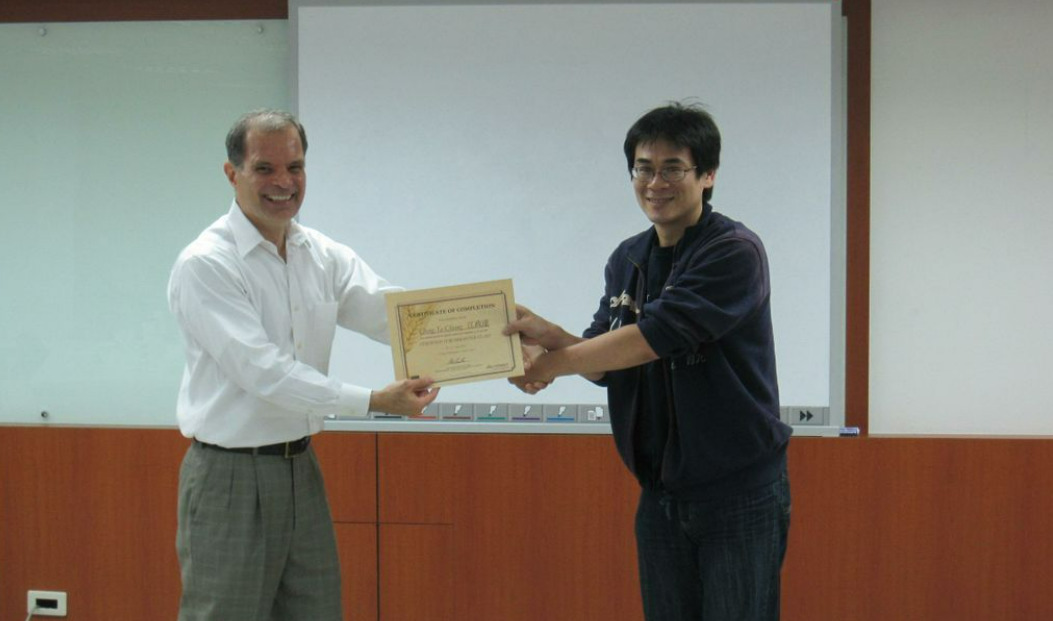Nowadays, more and more companies are looking for talented Agile project managers to help them optimize the execution of projects. So, how to become an Agile project manager?
The increasing demand for Agile methods has increased the competition rate when applying for this position. But don’t worry! By following my 7-step guide, you will successfully apply for this position!
Job Duties
An Agile project manager is like a team leader who guides projects using Agile methods to keep things organized, communication flowing, and the project moving forward. Their job involves several duties:
- Support the team: Help the team work well together by giving them what they need and removing any problems in their way. If team members or others disagree, they help find solutions everyone can agree on.
- Work with the product owner/stakeholders: Team up with these people to know what the project should achieve and ensure the team’s work matches those goals.
- Plan the project: Make a roadmap for what will be done and when, and ensure everyone knows what’s happening.
- Manage risks: Look out for problems and find ways to fix them.
- Track progress: Watch how the project is going by checking key KPIs so they know if things are on track.
- Manage budget: Manage project budgets, control costs, and allocate resources to maximize value delivery.
- Train and coach: Teach the team and others about Agile and help them get better at it.
- Documentation: Write down what the team is doing.
In short, an Agile project manager is like the captain of a ship, steering the project through Agile. The goal is to ensure the team stays on course and help them navigate challenges.

How To Become An Agile Project Manager
Now, let’s discover the educational foundations and hard and soft skills that you need to gain to become an Agile project manager. Once you have learned the basics, you need to get practical experience and certification.
1. Get A Bachelor’s Degree
I recommend getting a Bachelor’s degree as the first step as it provides a strong foundation in principles and the specific skills needed to excel in this role.
You can get this degree from accredited colleges and universities around the world. Here are three majors you can consider:
- Business Administration
- Information Technology
- Project Management
These majors include project planning, risk management, budgeting, and stakeholder communication; all are relevant to this field.
Depending on the industry, Agile project management may require technical expertise. In such cases, a relevant degree in computer science, computer engineering, or another related field can provide this knowledge.
When choosing a college or university, besides the major, here are other factors to consider:
- Location
- Cost
- Program offerings
- Accreditation
- Faculty qualifications
- Reputation
Since a Bachelor’s degree program usually lasts about four years, think carefully when choosing where to get it. Make a list of the most suitable options after considering the above and choose the best one!
2. Develop Technical and Soft Skills

Employers value Agile project managers with a strong skill set. Besides knowledge, you need technical and soft skills to lead teams to successful outcomes, meet deadlines, and keep stakeholders happy.
Technical Skills
- Agile methods: First, learn about Agile methods like Scrum or Kanban and know what they are and how they work. You can do this through online courses or workshops.
- Technical domain knowledge: Depending on your job, get to know the basics of your industry, whether software, engineering or something else.
- Tools and software: Get familiar with project management tools like Jira or Trello. They help you manage projects better.
- Quality check: Know how to ensure your team’s work is high quality.
Soft Skills
- Communication: You’ll talk to your team and other people a lot. So, clear communication is crucial.
- Leadership: A good manager means you can inspire your team and help them work together.
- Adaptability: Because Agile projects often change direction, you need to adapt when needed.
- Problem-solving: Agile project managers often face tricky issues that need creative solutions.
- Time management: Be good at managing time and resources to keep your projects on track.
- Negotiation: Develop negotiation skills because you’ll often need to negotiate scope, priorities, and resources with stakeholders.
For this job, soft skills are more vital because you will work in teams and interact with people. During your Bachelor’s degree program, you can hone these skills by taking classes seriously and working on projects.

3. Get A Master’s Degree (Optional)
Many Agile project managers I know have a Master’s degree because this program goes into more detail about this field, which helps them handle complex Agile projects better.
Some programs let you focus on specific areas to make you stand out and match your education with your career goals. In some places, having this degree can help you get promotions or higher pay.
Yet, a Master’s degree is not a must. You can also become an Agile project manager through other paths like practical experience and certifications. So, think about your goals and what fits best for you.
If you decide to go for this degree, you have options like:
- MBA: You can do an MBA with a focus on project management or Agile.
- MS in Project Management: Some colleges offer special MS programs that dive deep into project management and Agile.
- MIT: If you like IT, some programs combine IT with project management.
Remember, getting this degree is a big commitment in terms of time and finances. Many pros prefer to enter the workforce sooner and gain experience while building their skills.
4. Gain Relevant Experience
Agile is all about practical stuff, not just theory. So, the next step is to do real projects that help you practically learn Agile.
The most favorable route to becoming an Agile project manager is to work directly in this field. You can achieve this through:
- Internships: Many firms offer internships with structured training and hands-on experience in this field.
- Entry jobs: You can start as a junior project manager, scrum master, or Agile coach in firms using Agile.
If you enter this field from a different background, consider project administration and support roles. These roles often provide exposure to project management practices and can serve as stepping stones.
In this process, I recommend finding a mentor who’s an experienced Agile project manager. This mentor can guide you, share their knowledge, and help you as you learn.
Remember, building experience takes time. So, be patient with yourself! Every project, whether it goes smoothly or not, helps you grow as an Agile project manager.
5. Gain Certifications

Many employers hire Agile project managers with certifications because they prove you’re really good at Agile and managing projects.
To get certifications, you need to take training courses from certification groups. Some certs let you study on your own with books and online guides. But you often need real experience in Agile projects to get certified.
Here are some helpful options for your career:
- CSM: From Scrum Alliance, this one is well-known and one of the most recognized certifications in this field. You do a two-day training and pass a test.
- PMI-ACP: PMI gives this to Agile experts who want to dig deeper into AgilePM methods. You need some education and experience to pass a test.
- CAL: It focuses on Agile leadership.
- SAFe: It’s for Agile experts in companies using the scaled Agile framework.
- PSM: Scrum.org does PSM certs for scrum masters and Agile pros.
- AgilePM: Provided by APMG, it covers Agile project management principles.
- PRINCE2 Agile: It’s for managers who already know the basics of PRINCE2 and Agile and want to dig deeper into PRINCE2.
To choose the suitable one, consider your career goals, the Agile methods you intend to use, and the field you want to work in.
6. Apply For Jobs
At this point, you have met the qualifications to apply for this position. You need to make a resume to show your skills, certifications, and work experience. Then, change it a bit to match the job you want.
When applying for jobs, don’t forget to write a cover letter to introduce yourself, explain why you’re perfect for the position, and show that you’re excited about the company.
Then, prepare for interviews by being ready to talk about your Agile experience, certifications, and how you handled Agile challenges. Practice answering common Agile questions.
You might have to apply for a few before you get the one you want. So, don’t be discouraged when rejected.
7. Build A Professional Network
Any job needs a network to increase job and advancement opportunities. The best ways to create professional relationships in this field are events, communities, conferences, and online forums.
Join Agile events and communities
Many Agile conferences, events, and meetups are taking place to help you interact and make friends with Agile experts. They can share their experiences and best practices to help you get the most out of your work.
Attend conferences related to project management
Through these conferences, you can expand your knowledge and learn from seniors in the industry. Also, you can stay updated with the latest advances in this field.
Join Agile forums and online groups
Many networking platforms help you connect with other managers. LinkedIn is one of them and my favorite places to discuss and share my knowledge. On LinkedIn, I have received a lot of advice from experts.

Where Do Agile Project Managers Work?
Agile project managers work in various places where projects happen using Agile. Here are some common ones:
- IT and tech companies
- Banks and financial companies
- Healthcare institutions
- Factories
- Marketing firms
- Consulting firms
- Government and public sector
- Phone and internet companies
- Schools and universities
- Non-profit and NGO organizations
The specific field and project needs determine the work environment for these roles. So, it is a versatile career path with opportunities across various sectors.
Career Outlook and Salary
The job market for Agile project managers looks good. Many fields, like tech and finance, want these roles because they’re experts in managing projects.
As more industries adopt Agile methods, the demand for skilled managers is expected to stay strong. So, keeping your skills updated and getting certifications can help you earn a higher salary in this field.
Regarding earnings, an Agile project manager in 2023 can earn from $99,000 to $151,000 per year. This income includes a base salary of $91,000 to $137,000 per year, plus extra pay of $8,000 to $14,000 per year.
Your salary depends on your experience, any certifications you have, your workplace, and the type of industry. Generally, more experienced managers or those with top certifications earn more.
FAQs
Is Agile Better Than PMP?
Agile and PMP are for different kinds of projects. Agile is for flexible and fast-changing projects. Meanwhile, PMP is for more structured ones. It depends on the project you’re working on.
Is Agile Project Management Hard?
Yes. Agile project management can be challenging because it’s about predicting the cost, resources, and time required.
How Can I Be A Good Agile Project Manager?
To be a good Agile project manager, focus on talking well with your team, being adaptable, leading effectively, and learning. Get certified, work on projects, and keep getting better.
How Long Does It Take To Learn Agile Project Management?
Learning Agile can take a few months, but it depends on how much you know already and how much effort you put in.
How To Improve Agile Skills?
You can improve Agile skills by taking courses, getting certified, working on Agile projects, finding experts to learn from, staying updated, and thinking about what you’ve learned.
What Is Expected From An Agile Project Manager?
This role needs to ensure Agile processes work well, lead the team, solve problems, help the team communicate, and manage project scope. They also need to be good at handling changes in the project.
Conclusion
Above is a clear roadmap of how to become an Agile project manager. This process requires a blend of education, skills, and experience.
Thus, to apply for this Agile project manager position, you need to study seriously and develop your skill set.
Hopefully, you will become a successful Agile project manager!
